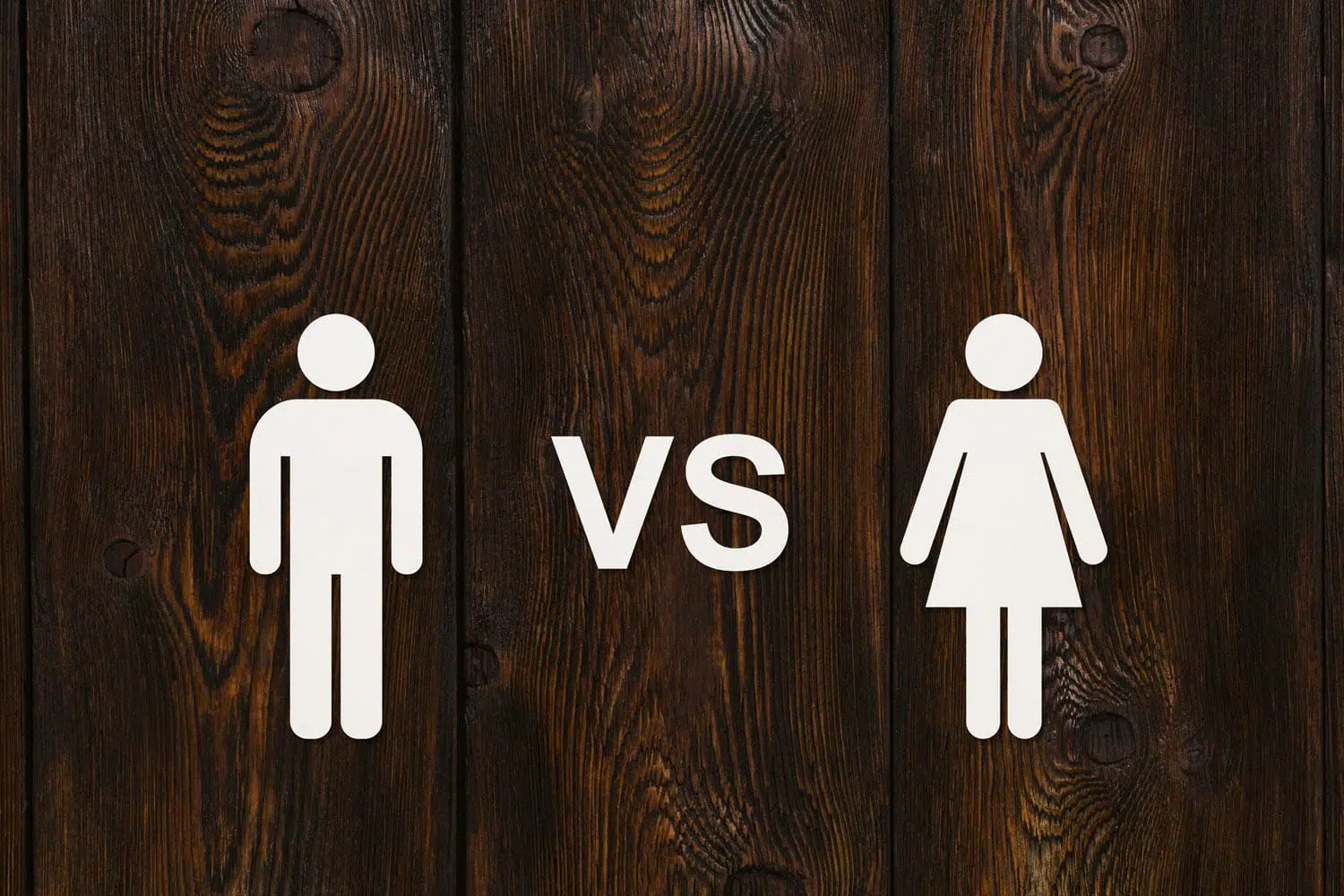Justice is blind in sculptor Raymond Kaskey’s 1994 piece1 in front of the Albert V Bryan Federal District Courthouse in Alexandria. Justice is also a woman. Her sex is owed to her ancient history, say experts quoted in the New York Times2, with the Egyptian goddess Maat weighing humans’ souls on her scales. Her blindfold is a more recent addition, meant to indicate the neutrality of humankind’s justice, unmoved by gender or the visible trappings of wealth. If justice in Virginia is blind, do women have different rights than men in divorce?
What the Law Says
The legalities of divorce in Virginia are laid out in case law and the Code of Virginia. The Code, Title 20, Chapter 6 sets out all the niceties of divorce proceedings, from filing petitions to arranging child support and visitation. Nowhere in the law are women the beneficiaries of an exclusive, explicit carve-out intended to benefit them at the cost of Virginia’s men.
In fact, the legislators and governors crafting the language have taken pains to loudly proclaim the opposite. Consider this passage from § 20-124.2, Court-ordered custody and visitation arrangements (with our emphasis):
The court shall consider and may award joint legal, joint physical, or sole custody, and there shall be no presumption in favor of any form of custody. The court shall assure minor children of frequent and continuing contact with both parents, when appropriate, and encourage parents to share in the responsibilities of rearing their children. As between the parents, there shall be no presumption or inference of law in favor of either.
What History Has Said
In divorce, Virginia law may say both parties share equal footing, but given the long history of men earning higher incomes than women, and women taking on the role of chief caregiver for children, many Virginia judges have historically favored women over men with regards to:
- Spousal support
- Child custody and visitation
- Child support
A lot of these decisions were based on the “tender years doctrine,” the notion that mothers are somehow genetically and biologically predisposed to being better caregivers than men.
Dr. Leighton Stamps, writing in the Journal of Divorce & Remarriage in 2002, found from a survey of 149 divorce court judges in several southern states that the judges exhibited “continuing indications of maternal preference.” This despite every state in America having, at that time and continuing today, what are considered “gender-neutral” custody laws.
That attitude to prefer women over men in custody may be slowly changing, but a Virginia man would still be well advised to have a lawyer alert for signs of bias from the bench. Though women do not have different rights than men in divorce, they often feel they receive unequal (deferential) treatment from some Virginia judges.
Research based on the U.S. Census figures for paternal custody indicates that Virginia fathers can expect to win sole custody of their children only 17.5 percent of the time they fight for it.
While no law compels a judge to award custody to a woman more often than a man, in Virginia and across the country, that seems to still be the norm.
What Reality Says
The law (and justice, blind as she is) may say one thing; reality says another. We have written about this before, but for whatever reasons you care to ascribe — earning power, education, sex-based role models, tradition — far more women than men win custody of children, win spousal support, and win child support.
So it is not the law that puts its thumbs on the divorce court scale. It is other circumstances conspiring to make you feel the law gives your ex-wife more rights (or different rights) than you.
Your earning power may be greater than your ex-wife’s earning power. She may have stayed out of the job market to raise your children, leaving her with child-rearing skills and little else. That saddles you with the double burden of spousal support (she made far less than you) and child support. It also increases the likelihood of losing sole custody and, perhaps, joint physical custody.
What Your Attorney Says
This is where a crack divorce attorney comes in. The law is neutral, but Virginia’s employment market, family traditions and history tip the balance toward your ex-wife. Your attorney has to work hard and proactively to give you the same opportunities as your ex-wife:
- To win child custody
- To get spousal support (or reduce spousal support payments to her)
- To compel her to pay you child support
If you and your ex-wife cannot agree on disposition of your children and financial support, her attorney and yours may have to go back and forth a few times with proposals and counteroffers. Be patient. Let your attorney work. Justice is blind, so your lawyer may need a bit of fireworks to get her attention.
Call The Only Family Law Firm in Virginia Representing Men Exclusively
When you call 757-383-9184 to speak to an attorney at The Firm For Men, or when you contact our offices online, you have no need to shout or wave a white flag. We are here every day, protecting Virginia men’s rights and ensuring that you receive equal justice under the law.
1. https://www.flickr.com/photos/timevanson/6830726846
2. https://www.nytimes.com/2010/12/16/books/16justice.html

